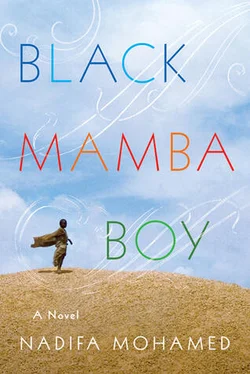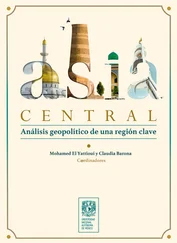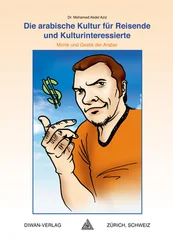Jama’s heart sank as he listened to his new superior. He could barely make out the rapid Italian but the cold gaze of the man was as clear as glass. Jama had a strong urge to flee but he lacked the courage or energy.
“Things are hotting up around here, and I need a disciplined, efficient team. I will take insubordination in this office as a form of treason against the empire,” the Italian bellowed to the men.
The office now teemed with soldiers and Eritrean askaris coming and going, preparing offensives against the patriots, reprisals against rebel villages, and purges of mutinous askaris. Jama couldn’t imagine a place for himself in this industrious beehive. The Italian grabbed him roughly by the shoulder and placed him by the desk. “Take this and keep the flies off me,” he demanded, thrusting a fly whisk into Jama’s hand.
Beside the thick arm of the Italian, a coiled hippopotamus-hide karbaash whip waited. Jama knew that despite the pain in his malaria-weak muscles he must continue or risk having his own skin whisked away. Unfortunate civilians and askaris carried the livid geography of lashes on their backs. The Italians used hippopotamus because the tough hide cut through human skin like a razor. One hundred lashes were enough to kill a healthy man, and they were generous with the blows. Jama felt that one stroke of the whip would probably send him to jannah in his delicate state. Standing so close, Jama could count the thin strands of hair greased over the Italian’s pate. He scrutinized the thick line of dirt under the man’s fingernails, the color of old blood.
Jama stood in the busy street after work. He felt strange and dirty, and he hoped he might find familiar company to lose himself in. Dust kicked up by pedestrians and donkey carts glittered in the setting sun, a crowd came up the dirt road. In its midst a local Takaruri crocodile hunter carried a large drum. He was as-saayih, a town crier, and he marched somberly and ceremoniously.
He addressed the bystanders in a sad voice: “Fighters of the land, the seas, and the air, blackshirts of the revolution and the legions, men and women of Italy, of the empire — listen. By decree of Emperor Vittorio Emanuele, all possessions held by the natives of Italian East Africa are deemed to be held only in trust and their true ownership will be adjudicated by colonial legislators. All hunting, fishing, and trapping is prohibited without permission from colonial authorities. O people, hear me, they are telling us we own nothing, and we cannot kill a thing for our mouths without asking them first.” The crowd laughed uncertainly.
“Oh no, this is no joke, my people! They are saying they own everything that lives. These locusts will take the food out of our children’s mouths,” roared the town crier. Jama walked alongside him as he made the announcement at every corner, his voice getting hoarser and more tragic with every declaration.
Jama pulled at the man’s sleeve as they walked. “What will you do? Will you still catch crocodiles?” he asked.
“No, son, not around here. When a jackal is shitting, the ants give it space. I will find some other work for the moment.”
Jama was surprised by the hunter. He could wrestle with man-eating crocodiles but like everyone else had been beaten by the arrogance and violence of the Fascists.
“You’re late, Alfredo!” barked the Italian as Jama ran in one morning. He avoided looking at the angry red face. He had developed a terrible fear of invoking someone’s unrestrained anger; he knew what some people were capable of and hated being around reckless fury. He didn’t try to explain that his sickness had still not left his body. “Scusami, signore,” muttered Jama as he reached for the fly whisk. Jama caught his breath as the Italian grabbed the karbaash and struck him on the palm. Tears shot out of Jama’s eyes and his hand curled up like a leaf in a fire. The Italian stared into Jama’s eyes and Jama stared back, waiting for a glimmer of remorse.
The Italian slowly sat back down, his face calm and unworried. “You dare be late once more and see what happens to you.”
Jama looked down at his palm. The skin was churned up like a freshly dug field, he could see the meat of his hand and the sight made him retch.
“Filthy brat! Get some sand and clean that up.” Jama staggered out. A Somali clansman stopped him in the street and washed his cut and wrapped a clean cloth around it. Jama was sobbing in pain and the clansmen tried to calm him.
“Ilaahey ha ku barakeeyo, God bless you, he will stop you hitting the ground, he will keep your head up,” chanted the clansman. “Go right back inside, Jama, and show him that you are a man. We will get our time, that stupid man doesn’t realize how vindictive we Somalis are.” He smiled and held Jama loosely against him.
“Go now, life is long.”
Jama returned to the office with a scoop of sand and threw it carelessly over the curdling vomit. He refused to make eye contact but picked up the whisk with his good hand. He felt proud and brave as he endured the stinging in his hand, he kept his chin up like a soldier.
It is hard to avenge yourself on someone you fear when everything about them, their height, power, possessions, confidence, imposes a sense of your own inferiority. Even a child’s imagination shrinks in the presence of terror. Jama returned every day to be bullied and shamed, despite the humming sickness in his bones he was like a moth drawn to the harsh light of the Italian’s power. Every day askaris were brought in, and Jama would watch over Silvio’s shoulder as he sentenced them to hanging or flogging or some original torture that he had devised. The Somalis, Eritreans, and Arabs were like dumb little children in front of him. Jama studied the way the Italian operated; he learned that neither physical ugliness nor moral weakness mattered in the world of men. A man was respected if other men feared him, and the Italian had somehow cracked the mystery of manufacturing fear in people. He was unpredictable and uninterested in the camaraderie of his peers, he reminded Jama of a wild boar, always on the verge of attack. There had been boys like that in Aden and they were the most dangerous, drowning smaller children while appearing to play or dropping rocks onto their sleeping heads. There were times when the Italian would try to show his gentility and he would put elegant music on the gramophone as he wrote letters home. With the floating up and down of the swaying music, he would close his eyes and a greasy smile would spread across his face like animal fat over a griddle. He never said please or thank you like the dead Italian had done but he would moderate the usual harshness in his voice while the music played, though soon after he would return to his usual brutality with a slap or thrown pen. Jama invented new insults silently in his head that made him smile patronizingly at the Italian. “Son of a thousand donkeys”; “Son of your sister and grandfather”; “Dirty-bottomed infidel”; “Pig-eating pig”; “Molester of goats and chickens.” But Jama also began to unconsciously emulate Silvio. He stood up straight and stuck his nose in the air, he avoided eye contact, he slicked his hair down with water, swearwords began to pepper his speech.
Today, Silvio was excited and energetic; he had made Jama polish his shoes until Jama could see the hairs in his nose clearly in the leather. The commanders had visited Omhajer and expressed their satisfaction with Silvio’s work. The office was full of Italians playing cards and drinking. One of them had found the maggiore’s camera somewhere and was trying to operate it, fumbling around with its delicate mechanisms. The flash popped like a slice of lightning in the man’s eyes and he threw it back on the table. Jama’s boss picked it up and began to arrange the drunk men in rows for photographs. He demanded someone take portraits of him alone, and he posed with his chin jutting out like Mussolini. He ordered askaris in from outside and with great happiness told them to hold him up in the air; four emaciated Eritreans and a Somali maneuvered him onto their shoulders and grimaced under his weight.
Читать дальше
Конец ознакомительного отрывка
Купить книгу












